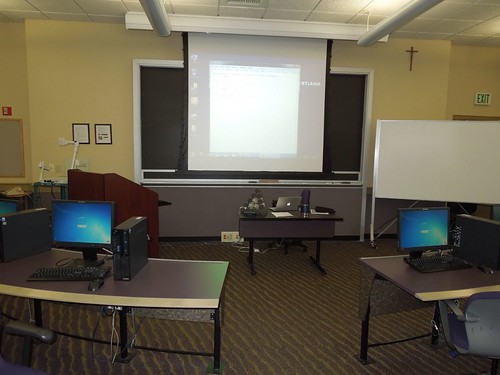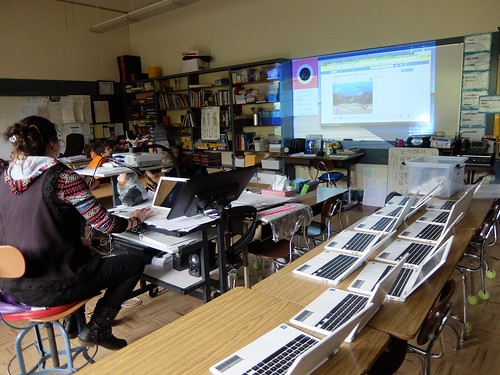I haven't actually lived in WDC (that's Washington, DC for nonlocals) for a long time, and even then, my chapters there were sporadic and short-lived.
I lived in a finished attic, cram-packed with spy and detective books, that time I worked for Americans for Civic Participation (a nonprofit voter registration outfit). Another time, my parents were housesitting a place near DuPont circle, below ground-level as I recall.
Speaking of which, Ed Applewhite introduced me to the Cosmos Club, on said circle, on a different visit. A bigger and older version of Wanderers in a lot of ways.
All of which is to say, I wasn't there when the decision was made to provoke Russia into actions egregious and punishable enough to justify the sudden imposition of sanctions up to and including an internet cut-off. So it's speculation on my part, mixed with some remote sensing (based on open sources), when I say the WDC political cast was taken by surprise when no switch got flipped such that all the lights went out in their foe economy. Russia Today (RT) remained accessible to those not dependent on cable.
Russia experienced disruption and inconvenience yet continues to have internet.
The missing puzzle piece, I'll offer, is:
- the free open source Linux revolution, starting in the 1980s,
- bringing us the graphical web by the 1990s (with memex vibes from earlier science fiction),
- and leading to e-commerce changing social dynamics big time (shopping, dating) in the early 2000s.
Software engineers learned that copyleft collaboration left "every company for itself" strategies in the dust, in terms of advancing the state of the art. Competitors could add some secret sauce and hide proprietary layers inside cloud containers, but the value added was atop publicly scrutable designs.
Making the fundamentals of tcp/ip secret, as in classified, would have defeated the whole purpose: to make a decentralized system that could withstand enemy attacks. That was arpanet (sticking to lowercase unix style).
As a consequence, those with less than a high school education, by today's standards, with respect to cyberspace, continued to think of "the internet" as some uniquely American (as in US) technology that could suddenly be withheld from others with the flip of a switch.
Let's imagine a TV show wherein a West Winger shouts "do it" through a bat phone to some anonymous corps of engineers in the Pentagon, but then nothing much happens, because there's nothing much to do really, in response to such orders.
Of course the banks have older games and could just repossess bank accounts. The lawlessness of the "rules based order" would feed a growing counterweight, a bulking up BRICS.
I'm not saying the internet couldn't be physically hampered. However the vote-winning hand was supposed to be a domineering control of cyberspace without the powers of explosives, not an edge in conventional force or special operations savvy.
Just throw that imaginary switch. Do that thing with the routers.
Once the sanctions proved ineffective, much to West Winger surprise, the game became more conventionally military -- but not really, and "because internet" again.
Eyeballs could gain access to the frontlines over coffee from any office. What used to be hard-to-obtain humint, moving sluggishly through the system, was now "open pipe plentiful" both as raw intel and cogent analysis. Propaganda met with counterintelligence at every turn.
So-called secrets would come out immediately, meaning they really had no chance to become hidden in the first place. The engineering cult of open source had transformed the vista, even when it came to waging a more conventional, less asymmetric war.
If my analysis is correct, then perhaps we're on the right track on YouTube, in providing higher education to those most in need, such as those WDC congresspeople and agency staffs.
Seeing how the global economy has swiftly integrated, and proved resilient, it's time to build in more anti-fragility. Fragile egos, suffering from imposter syndrome, need to stay away from hard hat construction sites in the energy department. Whoever blew up Nord Stream is too juvenile to have a place at the grownups' table.
Science is not about pandering to nationalism at every turn. The idea that the sciences have to wall themselves in and compartmentalize "because nations" has always seemed semi-ludicrous, given how the science cults (e.g. the Pythagoreans) long predate the United Nations.
The melodramas and game shows staged by the political cast constitute so much fluffy daytime TV for the least informed, from the standpoint of more snobby genres.
At another level (intertwined), you have a US military that was willing to go along with a "communism bad, capitalism good" ideology, but was unwilling to shift gears to an "our mafia versus their mafia" ideology once communism caved.
If it was just "our conglomerates versus their conglomerates" then it's more like a mercenary Europe, with gangs of thugs selling their services to some highest bidder, some Machiavellian.
Putting a lot of weight on rotting trestle timbers is a great way to lose a train.
Many in high leadership never lost that sense of detente and rapprochement that followed the reunification of the two Germanys. The Americans and Russians had been allies, with Russia taking the brunt, and the reason both felt safe to let the Germanys fuse was a sense of overcoming their own differences.
But not everyone got the memo, and out of sheer reflex and unthinking momentum, Russophobia persisted even when so-called communism had become harmless.
We have the old Smedley Butler screed War is a Racket, his shot across the bow of a business class thinking to heist (hijack) the US government (see Business Plot).
Humans need high ideals to die for, and if it's gonna be like Coke versus Pepsi, then the heroics ain't really there anymore. Interest in serving will wane, and civilians will forget why it's OK for a world military cast to prey upon them, forcing servitude (enslavement), compliance at gunpoint.
How are we "defending democracy" by allowing bought politicians to sell us out to highest bidders?
The American people are getting narratives from respected military figures with no special animosity towards Russians. Various ethnic groups continue grinding their axes, but their specific beefs have a way of sounding parochial, especially outside of Old Europe.
It's probably not fair to say that Ukrainians have burrowed more deeply into the molehill than Russians. Russian settlers date way back, including here in Cascadia for example.
Our ethnic Russians and Ukrainians get along with Estonians and Lithuanians (they share news and stores), just as our Vietnamese, Chinese, Japanese and Laotians are not at each others' throats.
AFSC's Portland branch was involved in diffusing Hispanic-Asian tensions. A melting pot can get hot, but it's not likely to boil over if democratically managed.
In sum...
The WDCers who masterminded the war on Russia didn't understand the global internet. Once it was no longer about communists under every bed, in every closet, many career military minds disengaged. Dot commie engineers weren't the same species, and their warez clearly underpinned the workings of today's capitalism. So why war against them? Pythonistas were not the enemy.



